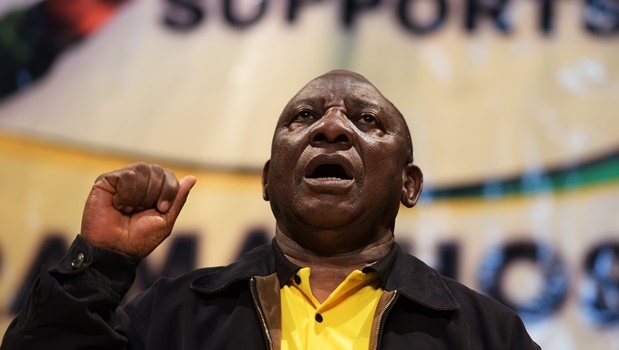
If reports of the outcomes of the recent ANC NEC meeting are anything to go by, there seems to be indications that the dying ideological divide might have visited some decision makers in the party, writes Mpumelelo Mkhabela.
Brazilian intellectual Roberto Unger opens his book, What Should the Left Propose? with the statement: "The world suffers under the dictatorship of no alternatives." Published in 2005, the book is a searing critique of those who dogmatically believe in either the market or command economic systems.
He argues that it should not be an either/or side of the ideological divide that dictates economic management. In the course of the 20th century, some countries did well at both market-oriented and government-led economic arrangements. Others have tried both and failed miserably.
Unger observes that the contrast between market and command systems, which has shaped economic debates for over 200 years, "is dead or dying". One of the reasons this is the case is that societies that have succeeded at market-oriented and government-directed arrangements are those that have been able to deploy a superior set of cooperative practices and innovation.
So, in the end, it's not about ideology, which "is dead or dying". It's about what works. And what works is about how things can be done and for what purpose/s.
The ANC-led tripartite alliance has for some time been stuck in this "dead or dying" contrast, with the left-leaning components of the alliance resisting fundamental reforms of state-owned companies. For them the state must hold on to state-owned enterprises (SOEs) for dear life whether this works or not.
In South Africa, except for a few exceptions such as Transnet, state ownership has become a drag on the economy. It poses a risk to the country's entire fiscal position.
Those in the ANC-led alliance who have advocated for a change of position such as outright or partial privatisation have been labelled "neoliberals" or proponents of the "96 Class Project" – a supposedly derogatory reference used to refer to the Mbeki economic reforms of the mid-90s.
Yet, if reports of the outcomes of the recent ANC national executive committee (NEC) meeting are anything to go by, there seems to be indications that the dying ideological divide might have visited some decision makers in the party. This death must be fast-tracked to allow for alternatives beyond ideological considerations. Indeed, Unger might have been writing about the ANC-led alliance when he observed: "The dictatorship of no alternatives will never be overthrown by a combination of narrow interests and impractical pieties."
READ: Magashule says there are no fundamental challenges to Mboweni's economic plan
Willingness to cut through the ideological divide?
The country's fiscal crisis and Finance Minister Tito Mboweni's unconventional – what he calls disruptive – way of policy making have forced the governing party to hold the much-needed urgent discussion about the future of the country's economy, particularly reforms for SOEs.
The result could be long-overdue pragmatism including inviting private sector players to invest in state-owned companies. This, in addition to the recent statement by President Cyril Ramaphosa suggesting workers should sit on boards of companies, means there is a willingness to cut through the ideological divide, that included a neat line between owners of capital and workers.
If Ramaphosa's statement is to be taken to its local conclusion, workers should also have shares in companies. When inviting private sector players, the government should create space for workers to hold shares in companies, and move the country from shareholder capitalism to the stakeholder version. This could be another way out of "the dictatorship of no alternatives".
Telkom is a great example of weaning the state off an unnecessary burden. If it was still a state entity, it would be in the never-ending queue for a state bailout. Taxpayers would be subsidising airtime in the same way they are subsidising South African Airways (SAA). Telkom's partial privatisation is a good example of the state combining forces with the private sector. Now the state is earning dividends from Telkom.
The only downside in the Telkom case is the fact that workers received no shares and had no board representation. But the demand by SAA pilots for a seat on the board of their company is encouraging.
Voters have no other options
The problem of "the dictatorship of no alternatives" extends beyond the ideological fan clubs and preferred economic arrangements within the ANC-led alliance which Ramaphosa recently criticised as dysfunctional. Notwithstanding this dysfunctionality, South African voters have no luck on options.
The ethically challenged leadership of the top two opposition parties – the Economic Freedom Fighters (EFF) and the Democratic Alliance (DA) – means voters are not spoiled with the options they deserve. If the quality of our democracy is to be measured by the quality of the opposition, recent reports of the EFF and/or its leaders benefitting from tenders in hung municipalities, where they play a kingmaker role, as well as accusations of non-disclosure of some material benefits by DA leader Mmusi Maimane suggest South Africans might be suffering from a dictatorship of no alternatives to the ANC-led alliance.
A senior ANC leader recently remarked in a private conversation that although it was taking a lot of energy and time to rid the party and government of the resistant culture of state capture, which has a tendency to reproduce itself through different players, there was simply no political alternative for South Africans. He said the ANC remained the only party that could give South Africans hope for a better future. He might have sounded arrogant, but is it not true?
The failure of the DA to reorganise itself beyond narrow factional interests, coupled with the latest internal attack on its leader, and the radical decline of the EFF's moral high ground in exposing wrongdoing in the governing party, means the ANC does not have sufficient pressure to move fast with required reforms. It is not facing a threat of immediate removal by the opposition. If anything, the threats are internal factions.
Given the governing party's electoral decline in the last election, a well-organised opposition would either force the ANC to fast-track economic reforms or at least present voters with viable political alternatives. A dictatorship of no alternatives in political choice, like its counterpart in economic ideology, could belittle our hard-earned constitutional democracy. The essence of democracy is choice.
- Mkhabela is a regular columnist for News24.
** Want to respond to the columnist? Send your letter or article to voices@news24.com with your name, profile picture, contact details and location. We encourage a diversity of voices and views in our readers' submissions and reserve the right not to publish any and all submissions received.
Disclaimer: News24 encourages freedom of speech and the expression of diverse views. The views of columnists published on News24 are therefore their own and do not necessarily represent the views of News24.




 Publications
Publications
 Partners
Partners






















